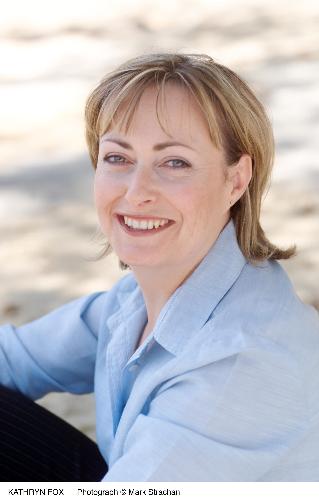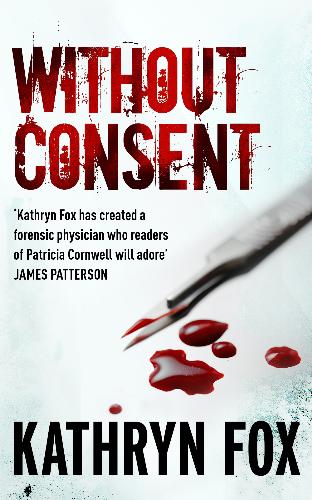



|
|

|

|
|
As young as five, I was drawn to crime stories in newspapers and magazines, much to my parentsí horror. That was the beginning of a passion for writing, people and science, and I wanted a career that combined all three. I chose medicine because in many ways, itís as much an art as it is science, and for someone fascinated with people and their stories, it is the ideal job. And every ailment is a mystery to be solved.
It was during my 12 years in general practice that I honed a special interest in forensic medicine.
This time I didnít just read about the crimes, I became involved Ė in a good way. Not many people realise, but GPs see a lot of crime and the ripple effect it has on the community Ė both immediate and long-term. I saw victims of child abuse, sexual assault, elderly who have been repeatedly physically abused by relatives, women who have endured the most horrendous domestic violence, all as part of the daysí work.
Thatís the thing about general practice. It is exactly that, which means I also saw rapists, and perpetrators of the violence. Even murderers have to have their blood pressure checked! At one stage I also did physical examinations on prisoners before they took up jobs on parole, or on day-release. That was a real eye opener into the minds of some very violent and intimidating men.
Seeing victims of crime and their families compelled me to learn a lot more about forensic examinations and the legal system. I ended up with boxes of research trying to give better care to my patients. At the same time, I had a plot idea forming and one day the story crystallised. Thatís when I knew I wanted to cut down to part-time general practice and learn how to write, which is how my first novel and forensic thriller, MALICIOUS INTENT, came into being.
It also heralded the creation of pathologist and forensic physician, Dr Anya Crichton. She chose pathology as a career to help people gain closure in their lives after death of loved ones. Closure was something she craves following the abduction of her younger sister when Anya was merely five years old. The trauma destroyed Anyaís family and still affects them all, thirty years later. Vulnerability is a theme that pervades her life.
In MALICIOUS INTENT, Anya has just lost custody of her four year old son. His age and vulnerability weigh heavily on Anya, especially as she canít always be there to protect him.
She is also struggling financially as the only female freelancer in her field so takes on work at a sexual assault unit to help pay the bills. It is here that Anya finds her true vocation, but is constantly faced with ethical dilemmas, not to mention the emotional side of traumatised patients. In that sense, it is far more difficult and demanding than forensic pathology.
By the end of MALICIOUS INTENT, Anya discovers things about herself, and what she is capable of, that shock her. She is irrevocably changed by what happens in the story, not necessarily for the better.
That sets the scene for WITHOUT CONSENT, the second book featuring Anya. She sees a number of women victims of a serial rapist and fears the violence will escalate to murder. If victims wonít give police statements, Anya is unable to give the police any information about what she knows. Then one of the women who sought Anyaís help is found stabbed to death. At the same time, she discovers mistakes a colleague had made. If she is right, sheíll become a whistle-blower and ruin his long and respected career. If she is wrong, the serial rapist may escape conviction and be free to kill again.
Anyaís work is close to my own heart, in that she struggles to improve the situation for victims, and deliver quality examinations, with care. Each book challenges her in different ways and leaves her changed, for either the better or the worse. We see her grow as her child grows. Eventually she will need to solve the mystery of her sisterís disappearance.
People often ask about how I research. OK, I admit that I am obsessive, but I can justify it by saying that gives my work far more credibility and authenticity! Thatís usually because itís so inspiring to talk to experts who are passionate about their fields, and sometimes big fans of my books, which is incredible. I subscribe to a variety of police, medical, legal and forensic journals, and spend time with pathologists and physicians, technicians, defence and prosecuting lawyers, crime scene police, forensic psychologists. I also attend detective and forensic courses, visit prisons and explore locations. I have to admit to having read entire textbooks on fire investigation for two arson scenes and another on asbestos to learn about identifying fibres found in lungs, just to make sure I was writing with accuracy.
Without having spent time at the sexual unit and the experience of doing physical examinations, I donít believe that some of the scenes would have been as powerful, particularly those in which Anya examines sexual assault victims. Readers, lawyers, doctors and victims have said how both confronted and moved they were by those scenes.
The other advantage of thorough research is that for me, it often spawns ideas. So Iím more than happy to keep researching. The trick is to know when to stop and when to start writing!
People also ask about the second book syndrome, given that MALICIOUS INTENT was an international bestseller and won an Australian award for best adult fiction. I didnít suffer from that because I was so familiar with Anya as a character when it came to writing WITHOUT CONSENT and already had a detailed outline of the plot before starting.
I have, however, had twinges of Ď3rd book syndromeí. WITHOUT CONSENT has had great reviews and proven even more successful. That placed a lot of extra pressure to not just maintain the standard, but to write an even better third book.
Itís also more challenging because this time Anya is having a break. Fans donít need to worry, though, sheíll be back in book 4.
I deliberately created an ensemble cast, some of whom will feature in their own novels. SKIN AND BONE features Kate Farrer, the detective from MALICIOUS INTENT. Kate is far more prickly than Anya and has proven far more difficult to write. Thankfully, sheís now doing what sheís supposed to and developing in her own way as she manoeuvres through the twists and turns in the plot.
With books being released around the world, there is a lot more time pressure to travel and do promotion that eats into writing time and the book deadlines donít change to accommodate that! Itís a little ironic that the more successful the writer, the more demand there is for your work. At the same time, there are many more demands on your time that detract from writing. Iím still juggling all those things. Itís a very steep learning curve. Even so, the only way to get through it is to just write, then rewrite, at every opportunity.
© Kathryn Fox 2007 Without Consent, Hodder Stoughton paperback March 2007 £6.99 |


| Webmaster: Tony 'Grog' Roberts [Contact] |